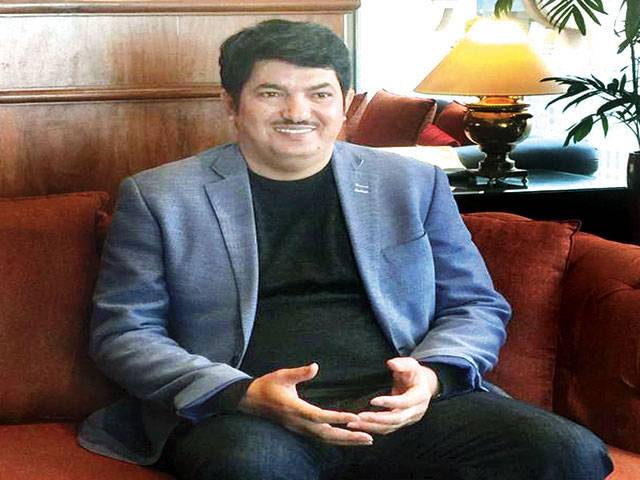ISLAMABAD - Only Pakistan as a country can take credit of the recent economic package worth billions of dollars, a leading Saudi think-tank chief said on Tuesday.
In an exclusive interview with The Nation here, International Institute for Iranian Studies Chairman Mohammed S Alsulami said that the Kingdom of Saudi Arabia put Pakistan first not the government as “governments come and go.”
“We have very good relations with the Pakistan military and take Pakistan as the most important ally. (Army chief) General (Qamar Javed) Bajwa is a very close friend (of Saudi Arabia). We have good ties with the present government too but the assistance was granted to Pakistan as a country. It is for the people of Pakistan not individuals,” he maintained.
Pakistan has received $2 billion in cash from Saudi Arabia at an interest rate of 3.18 percent, whereas the third tranche of $1 billion is due in the first week of February. Saudi Crown Prince Mohammed Bin Salman Bin Abdulaziz will also be visiting Pakistan in February to possibly announce new grants. Riyadh has already promised $9 billion deferred oil payments over the next three years.
Mohammed S Alsulami said that an individual or the government cannot take credit for the Saudi assistance. “We would have given this package to any government (formed by any party). Our military contacts (with Pakistan) are very strong. Even with the civilian government we have close relationship,” he said.
Alsulami said that his think tank aimed to defuse the regional tension and bring the neighbours closer. “For this we have joined hands with the think tanks and organizations in Pakistan. We are hopeful to work together with the Pakistani organizations for peace and progress,” he added.
The International Institute for Iranian Studies is an independent private institute, which presents consultations, strategic and forward-looking studies of high quality about Iranian affairs. The Institute also professionally addresses relevant media issues of concern through its staff.
It aims to reach trust of audience through the quality of its products, to execute tasks with high-efficiency, to commit to the standards of workmanship, to provide service in timely manner and to achieve distinction of service compared to similar institutes.
The IIIS goals are to provide strategic studies and reports about internal and external Iran-related affairs, to provide forward-looking studies about Iranian internal affairs, to conduct in-depth studies about Iran’s relationships with the rest of the world, to establish scientific partnerships with similar think tanks existing on local, regional and international scales, while contributing efficiently to workshops, conferences, discussion events regarding the issue of Iran, to provide comprehensive and specialized training circles in Iran-related affairs, to train and qualify journalists and researchers interested in Iranian affairs, to deliver basic and advanced courses in Persian language and to publish legible, visual and audible media products in relation to Iranian affairs.
Mohammed S Alsulami also said that the Yemen conflict was not a sectarian issue at all. “This is totally a political issue. Iran is portraying it as a sectarian conflict which is wrong. We (Saudi Arabia) have a 8-10 percent Shia population. We don’t promote sectarianism,” he remarked.
The scholar reminded Iran had been a Shia country for hundreds of years and it had been a peaceful neigbour of Saudi Arabia. “The tension is very recent. We have had very good relations with Iran in the past. There was never any Sunni or Shia issue,” he said.
Alsulami said Saudi Arabia considered Iran as a neighbor and believed the neighbours cannot be changed. “We cannot bring in Switzerland or any other country in Iran’s place. We have to live together so we need to have good ties,” he said.
Asked if Pakistan could play a role in the Yemen conflict, he said Islamabad can play any role they want. “They are a powerful country and we welcome any role played by them,” he added.
On Qatar, the Saudi scholar said: “Qatar has played a negative role. They are our cousins. They had their history shared with Saudi Arabia but now some of them are saying by 2020, there will be no Saudi Arabia. This is irresponsible,” he pointed out.
About the Pak-Qatar ties, he said the two were sovereign countries and can have bilateral ties. “Qatar is a tiny country. They want to play bigger than their share. This way they can’t be successful,” he contended.
Alsulami said Pakistan and Saudi Arabia had huge potential to expand their ties in all sectors other than defence. “We have good defence relationship already but we are buying Pakistani products from Germany. Why can’t we buy the same products from Pakistan directly? It should not be only military ties. We need to expand ties in all fields. Saudis like Pakistanis products,” he mentioned.
The Saudi scholar said Pakistanis can also invest in Saudi Arabia as the government had changed foreign investment policy. “I am sure the Saudi Crown Prince will discuss that (expanding bilateral ties) during his upcoming visit. Now you don’t need a kafeel (Saudi sponsor). You can buy your own property and work independently (in Saudi Arabia),” he explained.






